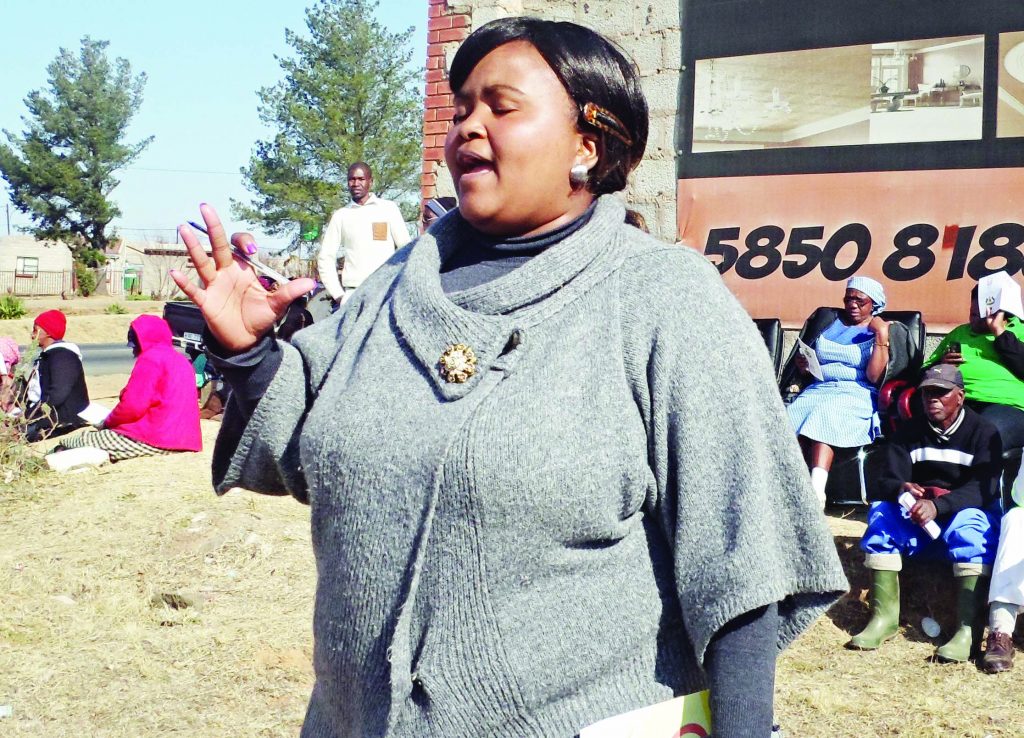Mazenod
WOMEN have the right to decide on their sexual relations and those with HIV/AIDS should protect themselves from further infection.
This was said by Community of Women Living with HIV and AIDS Lesotho Programme Officer, ‘Makananelo Fosa on Tuesday during a meeting held with members of the Mazenod community.
The meeting was organised by Women and Law Southern Africa (WLSA) Lesotho in commemoration of Women’s Month. August is regarded as Women’s Month as a tribute to the more than 20 000 South African women who marched to the Union Buildings in Pretoria on 9 August 1956 in protest against the extension of Pass Laws to women.
In her address to scores of women in attendance, Ms Fosa said the abuse of women continued long after being infected with HIV/AIDS because of patriarchal societal practices.
“Women have the right to tell their husbands to use condoms if they are infected. Furthermore, it is incumbent upon you to make sure you take your medication if you are diagnosed with the virus,” she said.
Ms Fosa said some of archaic and chauvinistic cultural tendencies which disempower women from deciding about their sexual health should be done away with. She said some women had to endure segregation by their communities and families for being HIV positive.
“Making decisions in the family is also your right and your husband can’t tell you not to eat from a certain plate because you are HIV positive,” said Ms Fosa.
WLSA Programme Officer, Mokheseng Buti, chipped in saying women should know their rights in a marriage.
“We need to understand what marriage constitutes in the Lesotho context. If a man abuses his wife and deprives her of her material needs, she may go out and seek another who will provide her with such,” he said.
Mr Buti said there were two types of legal marriages in Lesotho; the traditional and western.
“In the case of a traditional marriage, both parties come to an agreement and also need the endorsement of the parents for it to have legal standing,” he said
“In a white wedding, the parties and parents need to agree with the added requirement of a certificate from the District Administrator’s office that authenticates the marriage.”
Mr Buti added: “Under the traditional framework, if the father dies, the oldest son will inherit the estate but also assume the responsibility of continuing to take care of the family.
“Where there’s no written will in a western marriage, the wife is entitled to 50 percent of the estate while the children split the other half among themselves.”
The Gender Officer for Maseru, ‘Mamolibeli Ngakane, said women should recognise their importance in society.
“The world, including, Lesotho sees our bravery and fighting spirit. This year we are focusing on the inheritance of the girl child,” Ms Ngakane said.
“This is because we have recognised that many are abused after the demise of their parents. Women and girl children should be equipped to fight against discrimination and abuse.”
After the meeting, one of the villagers, ‘Mapontšo Mothebe, told the Lesotho Times she had learnt a lot about her rights which she previously did not know about.
“It was important for us to learn about such issues as marital laws and our rights regarding sexual relations,” said Ms Mothebe.
“We are overwhelmed with the task of raising children and making sure there is food for the family to eat since a lot of the men are failing to provide.”



